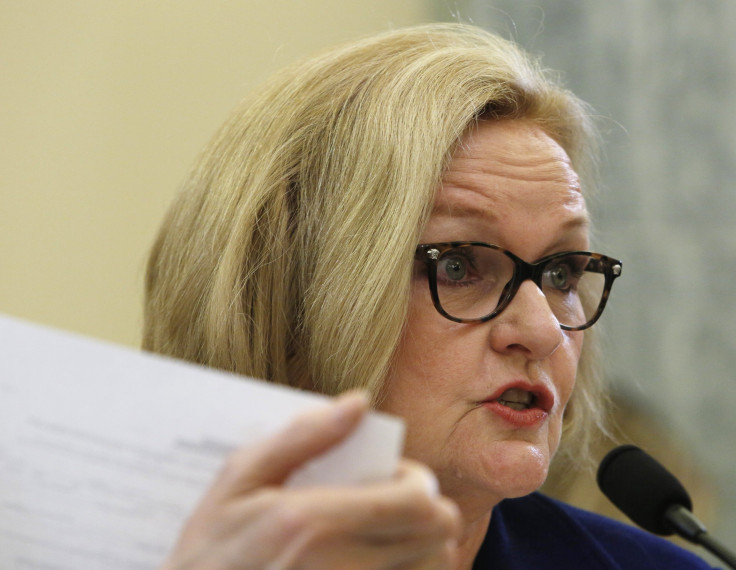Takata Air Bag Recall: Senator Says Automakers Confuse The Public With Recall Language

Sen. Claire McCaskill, D-Mo., lashed out at automakers Thursday in a Senate Commerce Committee hearing on the recall of millions of vehicles containing faulty air bag systems. The senator chided car companies for using misleading language in product safety notices.
Noting that some companies at first told customers that affected cars were part of a “service campaign” to address the air bag issue rather than a “recall,” McCaskill said the way various automakers are handling the same defect misleads consumers on the severity of the problem.
McCaskill, along with ranking committee member Sen. John Thune, D-S.D., is expected to present company whistleblower legislation later Thursday, aimed at exposing vehicle safety problems before they inflict injury.
McCaskill questioned the difference between safety recalls and service campaigns. Both terms have been used to announce the defect in which air bags deploy with such explosive force that metal fragments of the system rupture the bag and injure drivers and passengers.
“What is the difference [between a safety recall and a service campaign] and isn’t that difference important?” she asked during Thursday’s hearing in which Hiroshi Shimizu, Takata’s senior vice president of global quality assurance, faced tough questions from indignant lawmakers. “There seems to be confusion among the driving public about the scope and severity of these recalls. And part of that is because not all the manufacturers are treating this the same, using the same language, and we have failed to have clarity from NTSHA [U.S. National Highway Traffic Safety Administration] in this regard.”
Automakers tend to use the term “service campaign” to distinguish an action from a formal safety recall. Service campaigns can include minor defects that don’t pose imminent threats, such as minor electric flaws. However, service campaigns are sometimes later upgraded to formal safety recalls, which can give consumers an initial sense that the defect in their car isn’t dangerous.
Nissan and Honda both recently reclassified earlier service campaigns to formal recalls of cars containing the defective air bags in 1.3 million cars. Adding to the confusion is that NTSHA has allowed regional Takata-airbag related recalls. Takata says the air bag flaw is cause by extended exposure to high humidity, and that only cars in humid regions of the U.S. are affected.
As a result NTSHA allowed automakers to limit their recalls cars in areas of the country with high heat and humidity, like Florida.
Spurred by a ruptured Takata air bag incident in North Carolina involving a 2007 Ford Mustang, an incident that occurred outside of the “high-humidity” regions cited in earlier service campaigns and safety recalls, NHTSA ordered Tuesday that automakers include affected cars nationwide.
Earlier during Thursday’s hearing, Sen. Richard Blumenthal, D-Conn., called on automakers to offer loaners to owners of affected vehicles as they work to acquire enough fixed air bag systems from Takata.
Click here to view the latest list of affected cars in the United States. About 7.8 million vehicles in the U.S. are affected; some 10 million are affected globally.
© Copyright IBTimes 2024. All rights reserved.






















